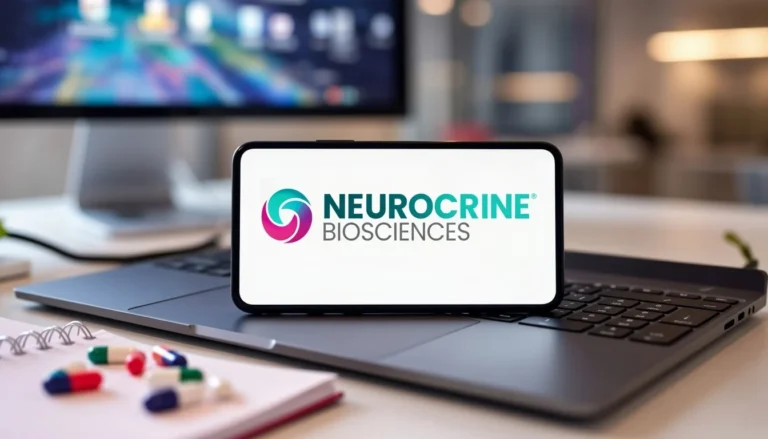
Merck Awards 2025 North American Advance Biotech Grant to Neoclease for AI-Driven Parkinson’s Gene Editing Therapy
Merck, a global leader in science and technology, has officially named Neoclease as the recipient of its 2025 North American Advance Biotech Grant, recognizing the Boston-based biotech startup for its cutting-edge work in AI-designed gene-editing therapies, particularly targeting Parkinson’s disease. This grant program, a hallmark of Merck’s ongoing commitment to supporting breakthrough innovations in biotechnology, will offer Neoclease not only financial support but also critical access to Merck’s expansive portfolio of technologies, regulatory insights, and manufacturing expertise.
Neoclease stands at the intersection of artificial intelligence and synthetic biology. The company is harnessing these rapidly evolving technologies to engineer a new generation of gene-editing tools capable of achieving unmatched precision. Its therapeutic platform aims to go beyond traditional symptom management to directly tackle the genetic roots of diseases. The company’s lead candidate, NCX-L2, is specifically designed to slow or even halt the progression of Parkinson’s disease—a neurodegenerative condition that currently has no disease-modifying therapies on the market.
This grant comes at a pivotal time for Neoclease, as it prepares to scale up its manufacturing and move its platform further along the developmental pipeline. The company’s proprietary platform uses generative AI algorithms to design highly specific gene-editing constructs, while synthetic biology ensures those edits can be applied safely and efficiently at the cellular level. According to the company, this approach could eventually be applied to over 6,000 monogenic diseases, creating a pathway for a host of potentially curative therapies in the coming decades.
Sebastian Arana, Head of Process Solutions within Merck’s Life Science business sector, highlighted the strategic alignment between Merck’s capabilities and Neoclease’s vision.
“We’re committed to empowering biotech innovators who are advancing transformative modalities like gene editing,” Arana said. “By combining Neoclease’s AI-designed gene-editing platform with our technologies, regulatory expertise, and process support, we aim to help accelerate new treatments that minimize side effects and maximize effectiveness for patients.”
Unparalleled Access to Merck’s Biotech Ecosystem
As part of its award package, Neoclease will receive broad support from Merck’s network of scientific resources. This includes access to:
- M Lab™ Collaboration Centers – These centers offer a unique, hands-on environment where biotech innovators can work alongside Merck experts to solve process development and manufacturing challenges in real-time. From early-stage process optimization to late-stage scale-up, these facilities serve as innovation accelerators.
- Emprove® Program – Designed to support regulatory compliance and quality assurance, the Emprove® framework provides detailed documentation for raw materials, process chemicals, and single-use products, making regulatory filings more efficient and transparent.
- Contract Testing Services and Product Access – Neoclease will also be able to leverage Merck’s comprehensive suite of products and analytical services to help streamline development, improve quality assurance, and navigate the rigorous standards of regulatory agencies like the FDA.
These tools and services are essential for early-stage biotech firms like Neoclease, which often face significant resource and knowledge barriers when attempting to transition from proof-of-concept to clinical-grade production. By offering this infrastructure, Merck helps grant winners like Neoclease focus on what they do best: advancing innovative science.
Spotlight on NCX-L2: Tackling Parkinson’s at Its Genetic Roots
Neoclease’s lead program, NCX-L2, represents a bold step forward in Parkinson’s disease treatment. Parkinson’s is characterized by the progressive degeneration of dopaminergic neurons in the brain, leading to tremors, rigidity, and severe motor dysfunction. While current treatments like levodopa temporarily alleviate symptoms, none are capable of slowing or stopping neuronal loss.
NCX-L2 takes a fundamentally different approach. Using AI-generated, customized gene-editing tools, the therapy is designed to correct or modulate specific genetic mutations that are implicated in disease progression. This could offer a disease-modifying solution that not only preserves neuronal function but also changes the trajectory of the disease itself. Preclinical studies are reportedly promising, and the company anticipates moving toward IND-enabling studies within the next year.
The broader implications of this technology are significant. While Neoclease is starting with Parkinson’s, its gene-editing framework is modular and adaptable, meaning it could be configured to target a wide range of rare and inherited conditions. Diseases like Huntington’s, certain forms of muscular dystrophy, cystic fibrosis, and even rare pediatric genetic disorders could potentially be addressed through this platform in the future.
Merck’s Commitment to Advancing Biotech Innovation Globally
The Advance Biotech Grant Program, first launched in 2014, underscores Merck’s long-term vision of fostering a global biotech ecosystem. Designed to support early-stage companies that are developing novel therapies for patients, the program provides more than just financial resources—it delivers an integrated suite of technical support, regulatory guidance, and real-world problem-solving capabilities.
To date, over 40 biotech companies across the globe have received this grant, spanning therapeutic areas such as oncology, neurology, immunology, rare diseases, and cardiovascular conditions. Many of these companies have used the grant as a springboard for clinical trials, regulatory approvals, and successful funding rounds. Merck has deliberately structured the program to not only recognize scientific excellence but to serve as a meaningful catalyst for translational development.
This year’s North American announcement will be followed by regional grant awards in Asia-Pacific (October 2025) and Europe, the Middle East, and Africa (EMEA) (November 2025), reflecting Merck’s strategic commitment to fostering innovation in every major biotech market. These regional programs ensure localized support and allow Merck to tailor resources based on regulatory environments and regional development challenges.
Empowering the Future of Medicine
The award to Neoclease highlights a significant trend in biotech: the convergence of computational design and therapeutic development. AI is rapidly becoming a critical tool in drug discovery, and when combined with the precision of synthetic biology and gene editing, it opens entirely new possibilities for treating complex and previously untreatable diseases.
Merck’s support gives Neoclease the infrastructure it needs to transform a promising concept into a tangible, life-changing therapy. And in doing so, it further validates the importance of strategic partnerships between large life sciences companies and agile biotech startups.
As Merck continues to invest in breakthrough technologies and innovative companies around the world, programs like the Advance Biotech Grant ensure that promising startups aren’t left behind. For Neoclease—and potentially thousands of patients living with genetic diseases—this partnership marks the beginning of a promising journey toward new, more effective treatments.
Merck, known as Merck KGaA, Darmstadt, Germany, in the United States and Canada, is a leading science and technology company operating across healthcare, life science, and electronics. Merck has a 350-year legacy of innovation and is dedicated to advancing human progress by empowering science and technology.
Neoclease is a Boston-based biotechnology company developing gene-editing therapies powered by artificial intelligence. Focused initially on neurodegenerative diseases such as Parkinson’s, Neoclease aims to design next-generation treatments that directly address the genetic causes of disease





